When you walk through the front door at Free to Feed in Melbourne’s inner-north suburb of Northcote, you feel instantly at ease. The non-profit social enterprise, which champions refugees, new migrants, and people seeking asylum through cooking classes and food initiatives, is lined with native greenery and warm timber shelves, all stacked with an assortment of ceramics, glassware and well-used cutlery. Chopping boards and serving platters are splayed across a central table. The sound of clinking pots spills through the kitchen door at the back of the room, along with the scent of cardamom, saffron and freshly chopped herbs.
Loretta Bolotin, founder and CEO of Free to Feed, swings through the kitchen door carrying a box of veggies and a pile of spice containers. “You’re here!” Her wide smile mirrors the welcoming atmosphere that the space exudes. That makes sense—after all, this is Bolotin’s baby. Bolotin is first and foremost a mother of two young boys, Koan and Sol, but the importance of family and belonging is at the core of Free to Feed.
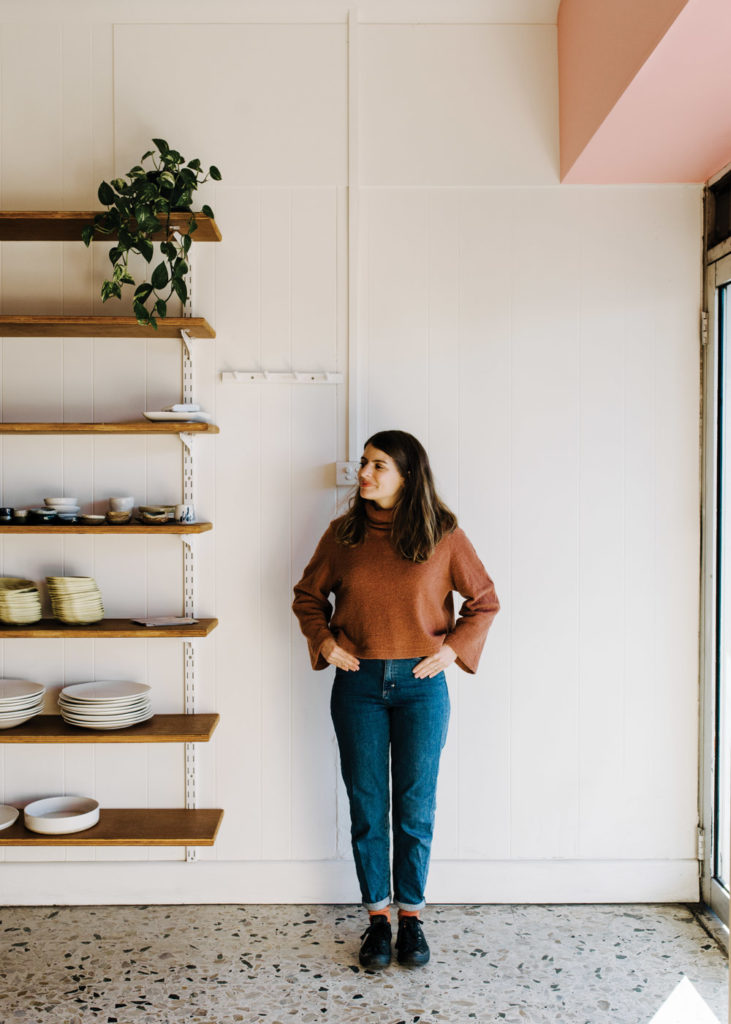
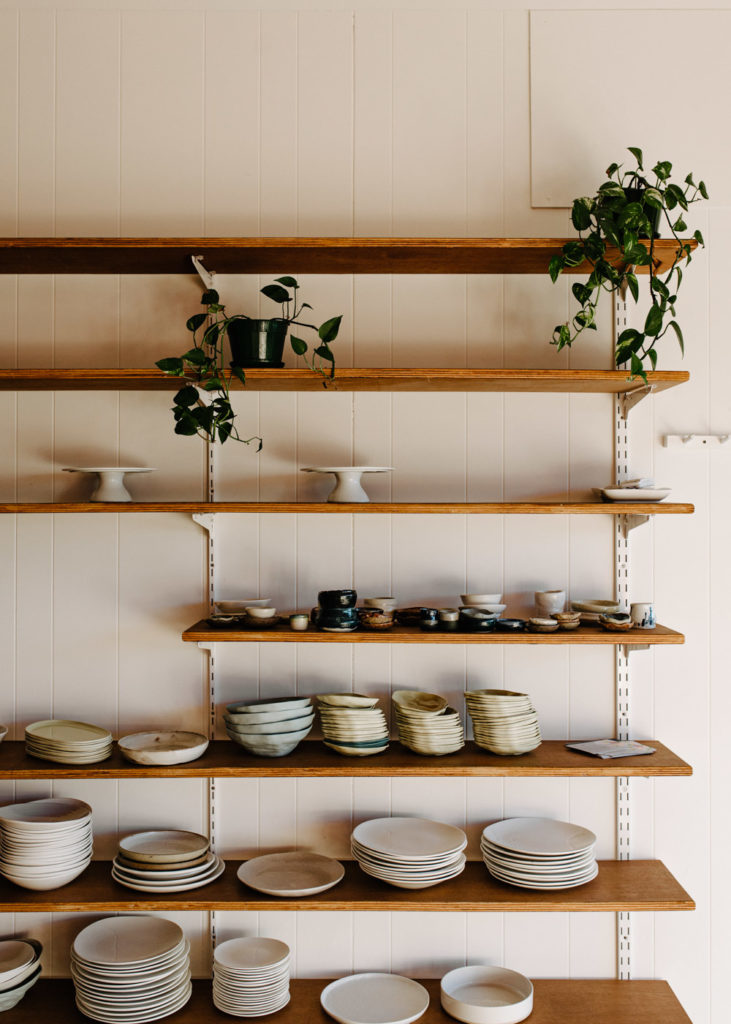
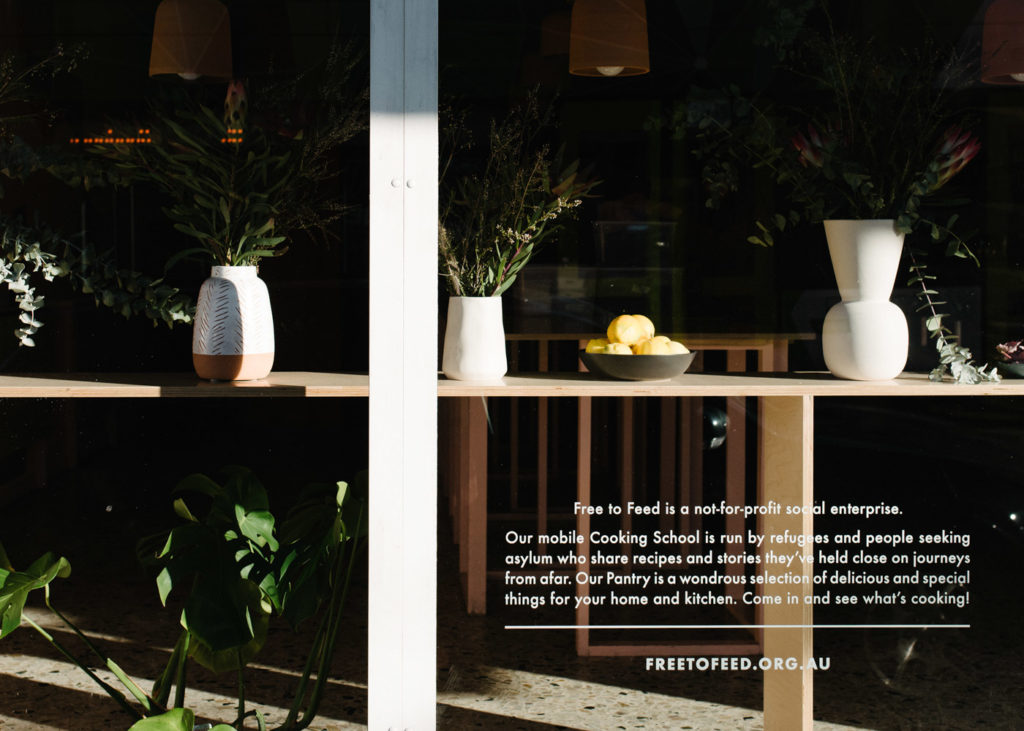
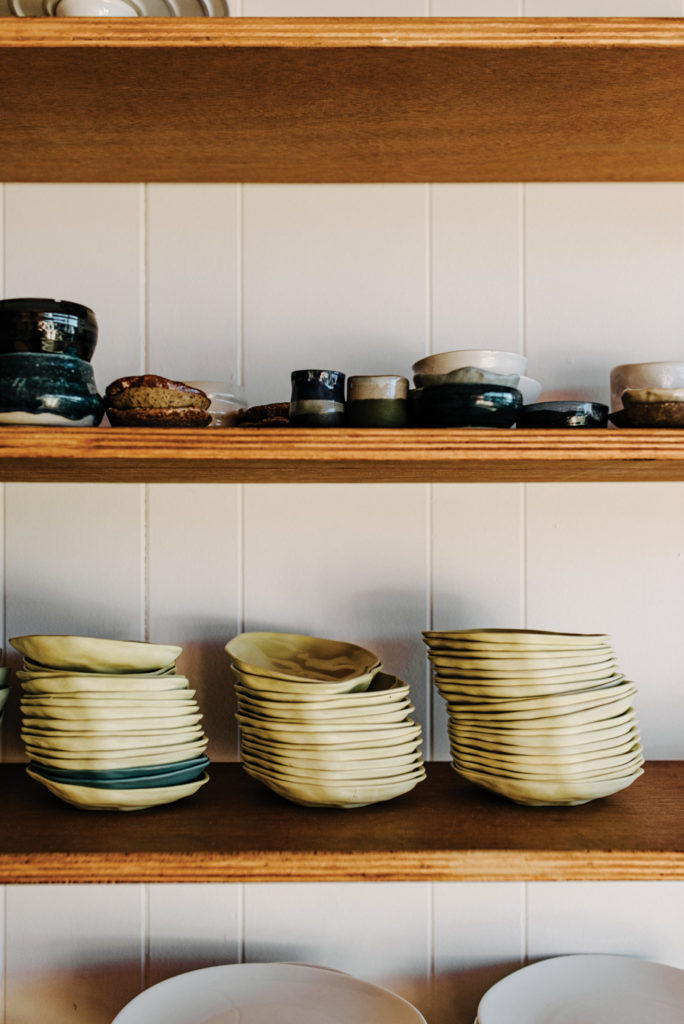
Bolotin starts arranging eggplants and tomatoes on the table. “Shahnaz is prepping for her next class,” she says, spooning dried mint, rose petals and pistachios into shallow bowls. “I’m just helping her get things set up.” Shahnaz is one of fourteen teachers who hosts cooking classes at Free to Feed. The organization also employs nearly thirty cooks. I ask Bolotin where the staff comes from. “Iraq, Syria, Pakistan, Malaysia, Sri Lanka, Thailand,” she says. “we have a lot of representation.”
“Today’s class will learn to make Khoresh Bademjan, a traditional Persian stew with eggplant and tomatoes,” she explains. The range of available classes offers something for everyone. You’ll use vibrant spice and heat in Sri Lankan cooking, or learn to prepare biryani, vine leaves, and other hearty, traditional dishes from Iraq—the hot cuisine of the moment, according to Bolotin.
In addition to cooking classes, Free to Feed offers workshops, catering services, immersive food experiences, bespoke events, and a range of house-made pantry items, all run and developed by the refugees, people seeking asylum, and new migrants employed by the organization.
Free to Feed also has a professional development program to help refugees looking to gain employment or start a business in Australia bring their vision to life. Since launching in 2015, these initiatives have provided over twelve thousand hours of paid training and issued over $300 thousand in wages. “We don’t just want to help people feel part of the community,” Bolotin tells me. “We want to help them with the challenges they often face in accessing employment.”
As we speak, it is clear how deeply Bolotin cares for those on her team, and how passionate she is about supporting them. “Everyone has such a beautiful, unique and often harrowing story,” she says. “To be a part of a community and then be suddenly uprooted and land in a totally foreign place can cause a stifling sense of isolation. Our aim is to give new arrivals the chance to connect with others, to showcase themselves, their food, and their stories in a way that instils empathy and interest from others.”
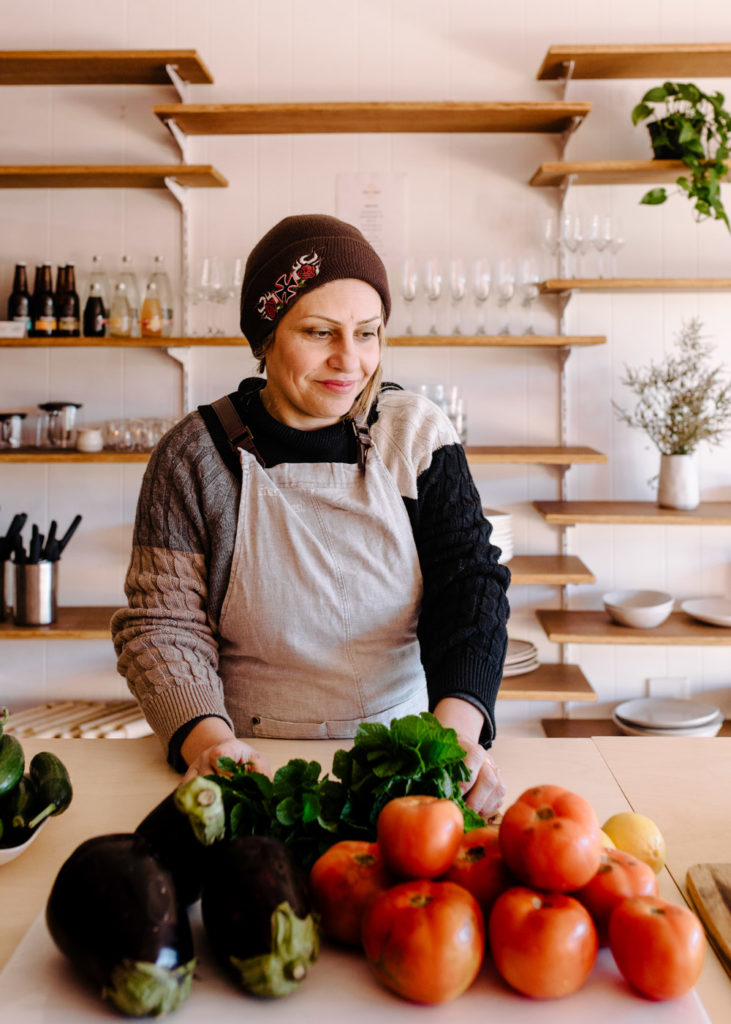
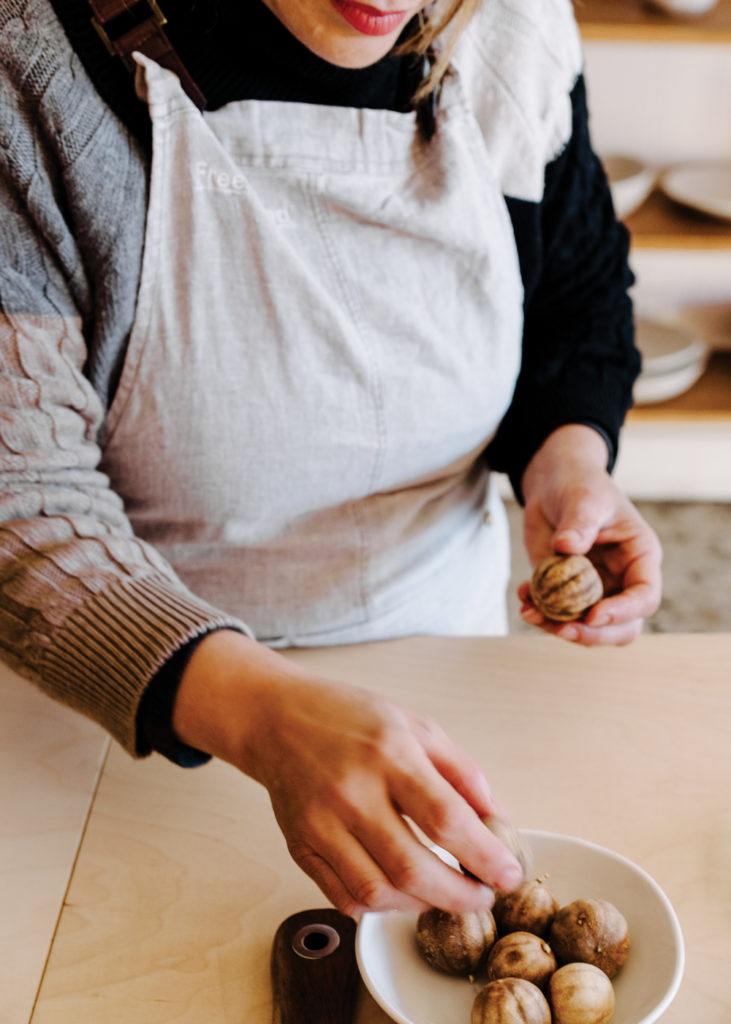
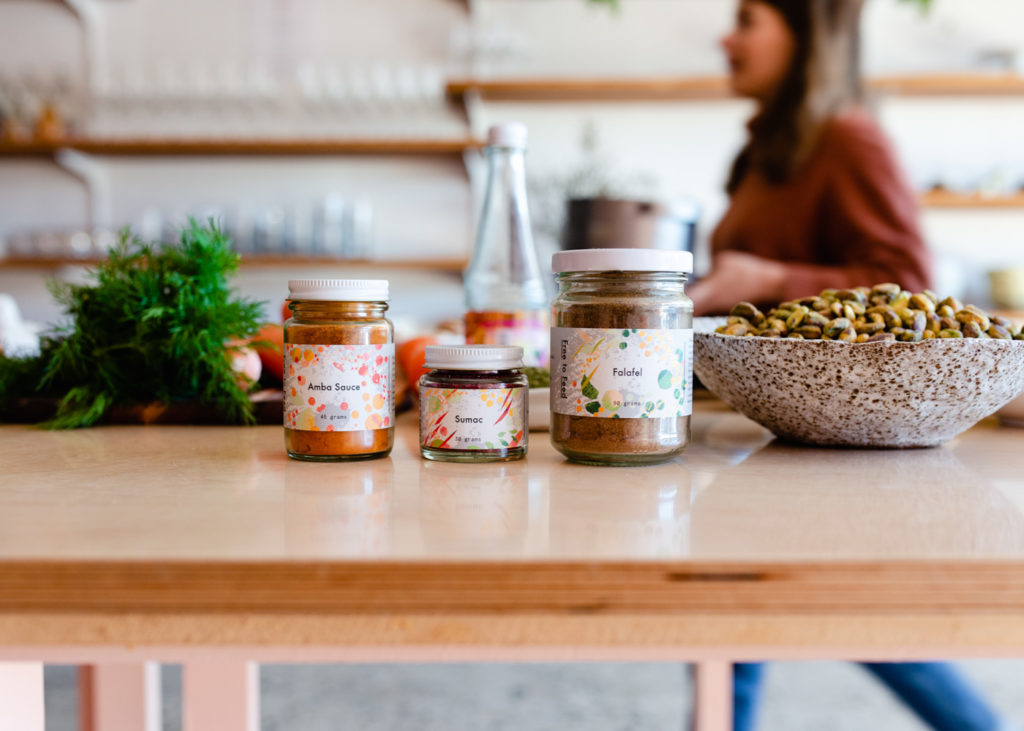
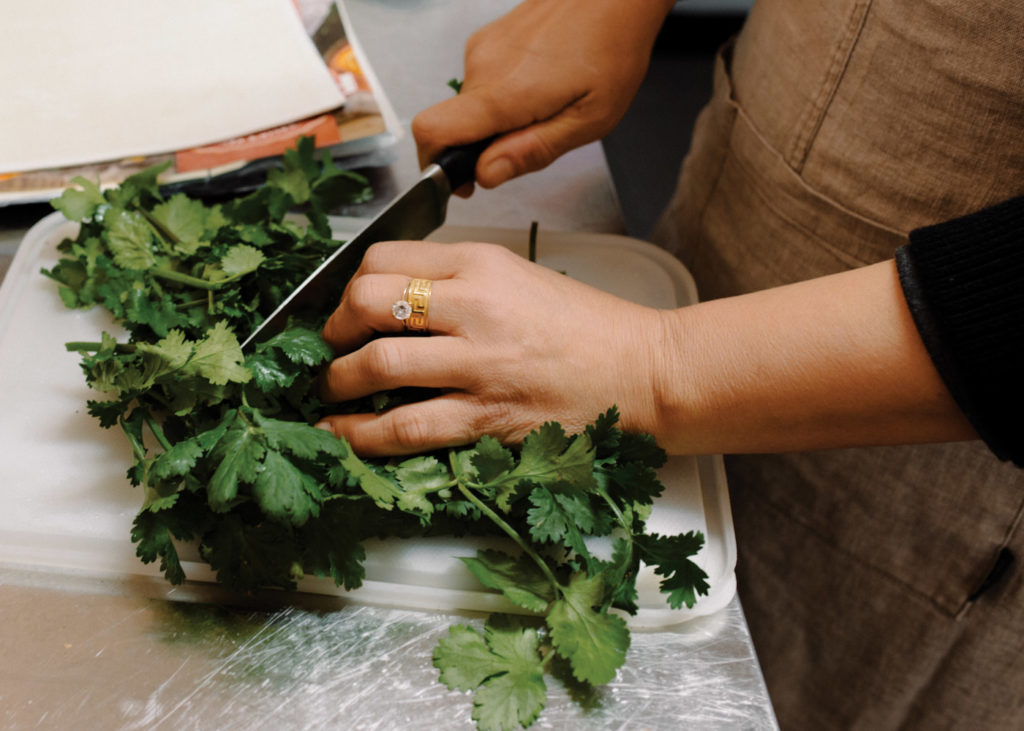
Bolotin has always been drawn to helping others. “My father came to Australia from Italy by boat. I grew up in a migrant family in a multiculturally rich part of Melbourne,” she says. “Exposure to feelings of alienation and the need for support is part of the fabric of my story.”
Before Free to Feed, Bolotin worked in the humanitarian sector for nearly a decade, gaining a greater sense of the barriers faced by people settling in a new homeland. While distributing aid to refugees in East Africa, she met her now-husband (and co-founder of Free to Feed), Daniel. “My partner also comes from a refugee background. His family came to Australia from Uzbekistan in the ‘70s on a humanitarian visa, and managed to build a beautiful, wholesome life and successful business here,” she says. “They have been such a source of inspiration, showing us the potential of what people are capable of.”
Inspired by both her family and the people she’d met through humanitarian work, Bolotin sought out and landed what she thought was her dream job working in women’s rights and gender justice at The Hague in the Netherlands, home of the U.N.’s international judicial courts. A new mother to baby Koan, she quickly realised the harsh reality of the role, which demanded exhausting, inflexible hours—ironic given the nature of the work. “I essentially found myself in an unrewarding desk job, detached from everything that really mattered to me—from being there for my family and for those who needed help in finding a sense of belonging,” she says.
Bolotin dropped the job. She sat down with Daniel and thought creatively about how to make people feel included, connected and represented all in a sustainable and balanced way. Food became an obvious answer, and the melting pot of Melbourne where they both grew up felt like “the right spiritual home to lay the foundations of Free to Feed.”
“We all eat, right?” She pokes at Daniel, who’s just come out from the kitchen with the remaining ingredients for Shahnaz’s class. “Universally, people come together to break bread. Each culture has their own rituals and traditions that revolve around the table. This is the place where we can really connect. This a place where people’s distinct skills, which are often rooted in their own histories, can be shared through meals and beautiful memories of cooking in their countries of origin during peaceful times.”
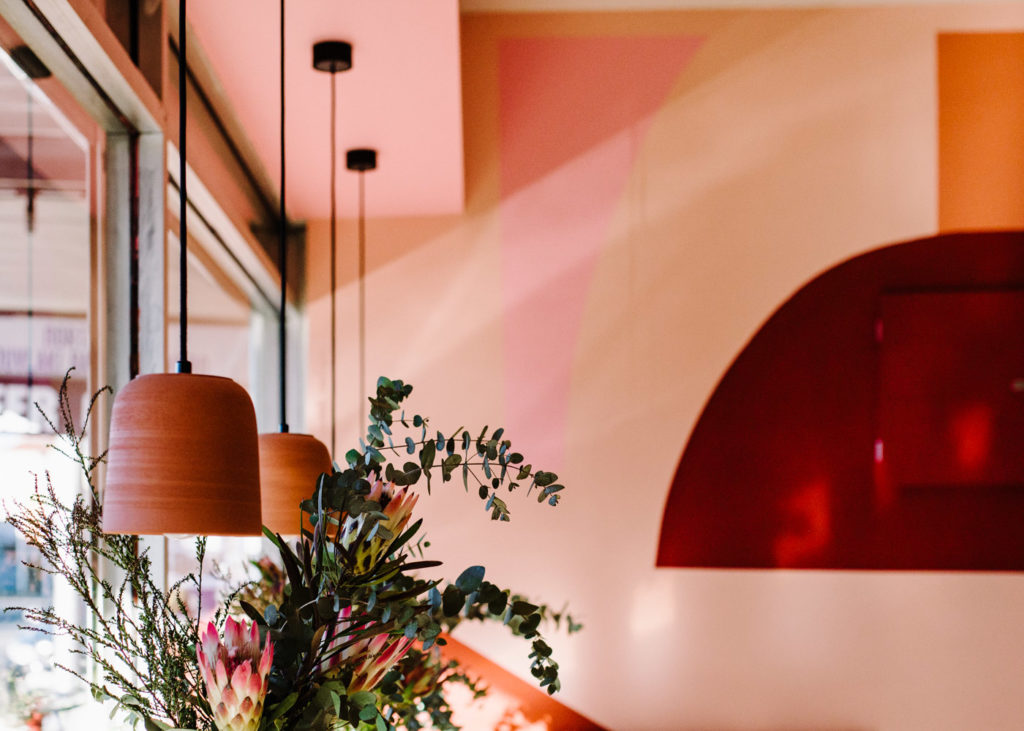

Bolotin is onto something there. Using food as a medium doesn’t just work because it’s delicious; it also serves as a way to discuss people’s experiences, and a way to help the community see the value that migrants and refugees contribute to society—economically, culturally, socially.
“Food isn’t everything, but it’s a gateway,” says Bolotin, who is hopeful about the conversations her team is sparking. Rather than donating to a traditional charity, Free to Feed provides an avenue for the public to actively participate in something important, as well as for new migrants to develop a meaningful network, which is essential in establishing a sense of identity in an unknown place.
“This work makes me endlessly in awe of how resilient we are as humans—of how much we want to survive and thrive,” she says. “People can go through the most horrendous, unspeakable trauma and still come out the other side and want to be better.”
Recently, Free to Feed’s efforts have been particularly focused on how they can engage women with limited English language skills. “For example, we have one woman working with us. She is fifty-seven years old and this is her first job ever. She comes from a culture where she was married very young and didn’t have the opportunity to pursue work. Now, she hasn’t just started over here, she’s completely reinvented herself,” says Bolotin. “She’s eager to learn and share everything she’s been practicing in her kitchen her whole life while raising a family.” This is just one of many stories that keeps Bolotin and her team motivated.
Bolotin hopes to continue growing the social enterprise in a way that can sustainably support more and more people, both customers and employees. She tells me, “We want to be a leader in the culinary space so that taking a class, ordering catering for your workplace, or purchasing spices for your own home cooking is a really easy decision to make, and one that can actually change someone’s life.”

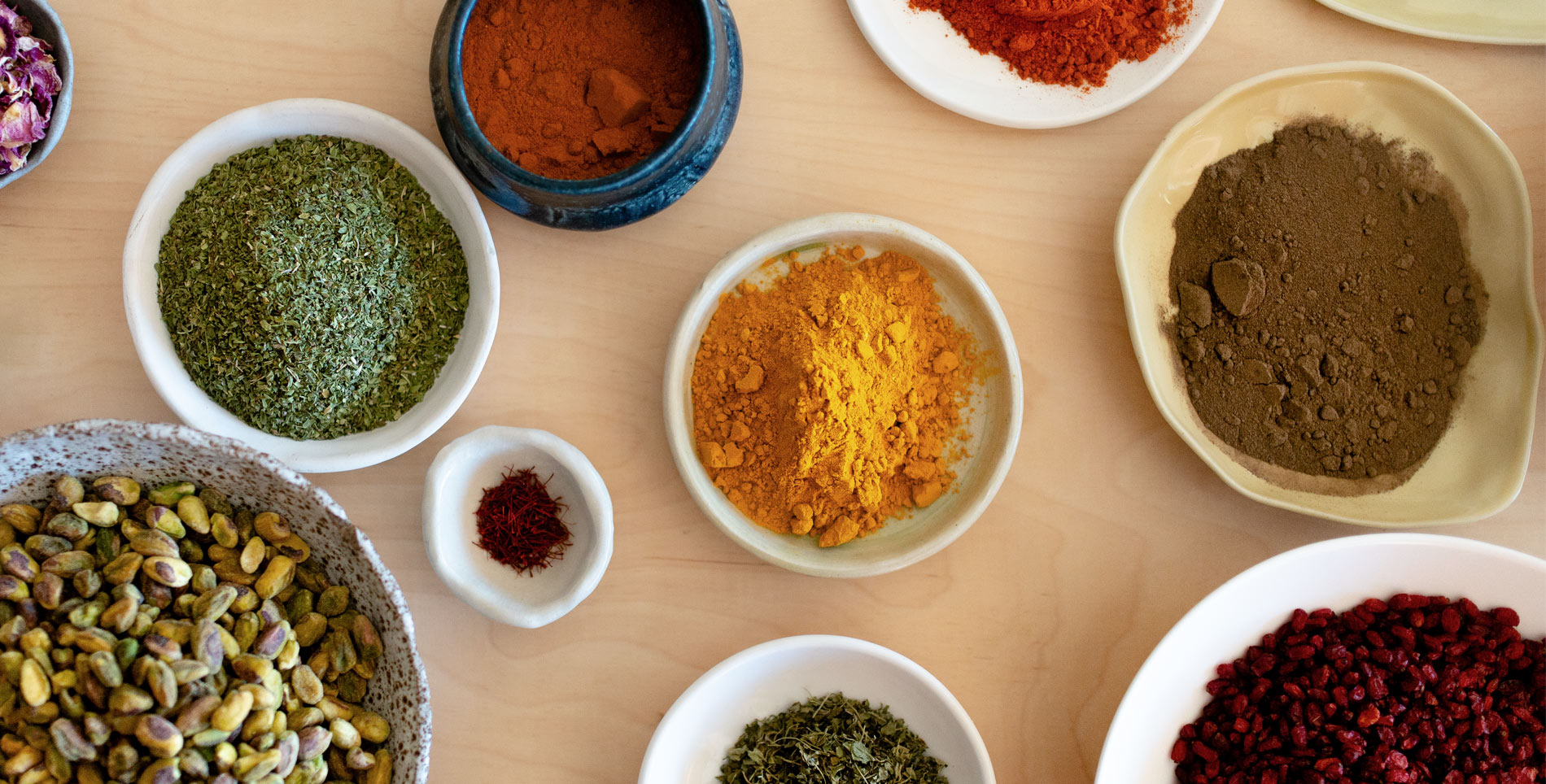

Our comments section is for members only.
Join today to gain exclusive access.